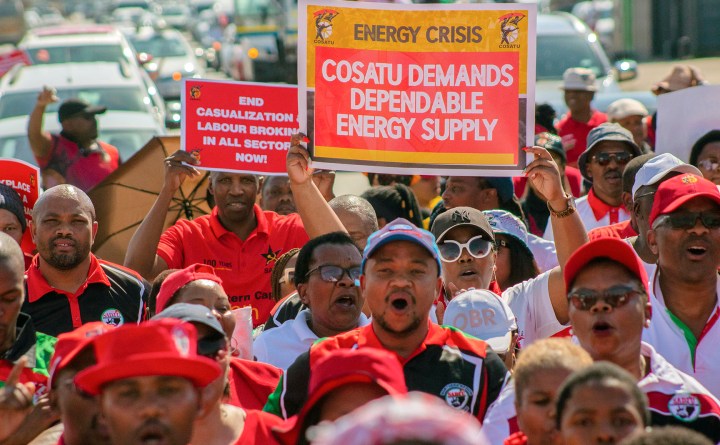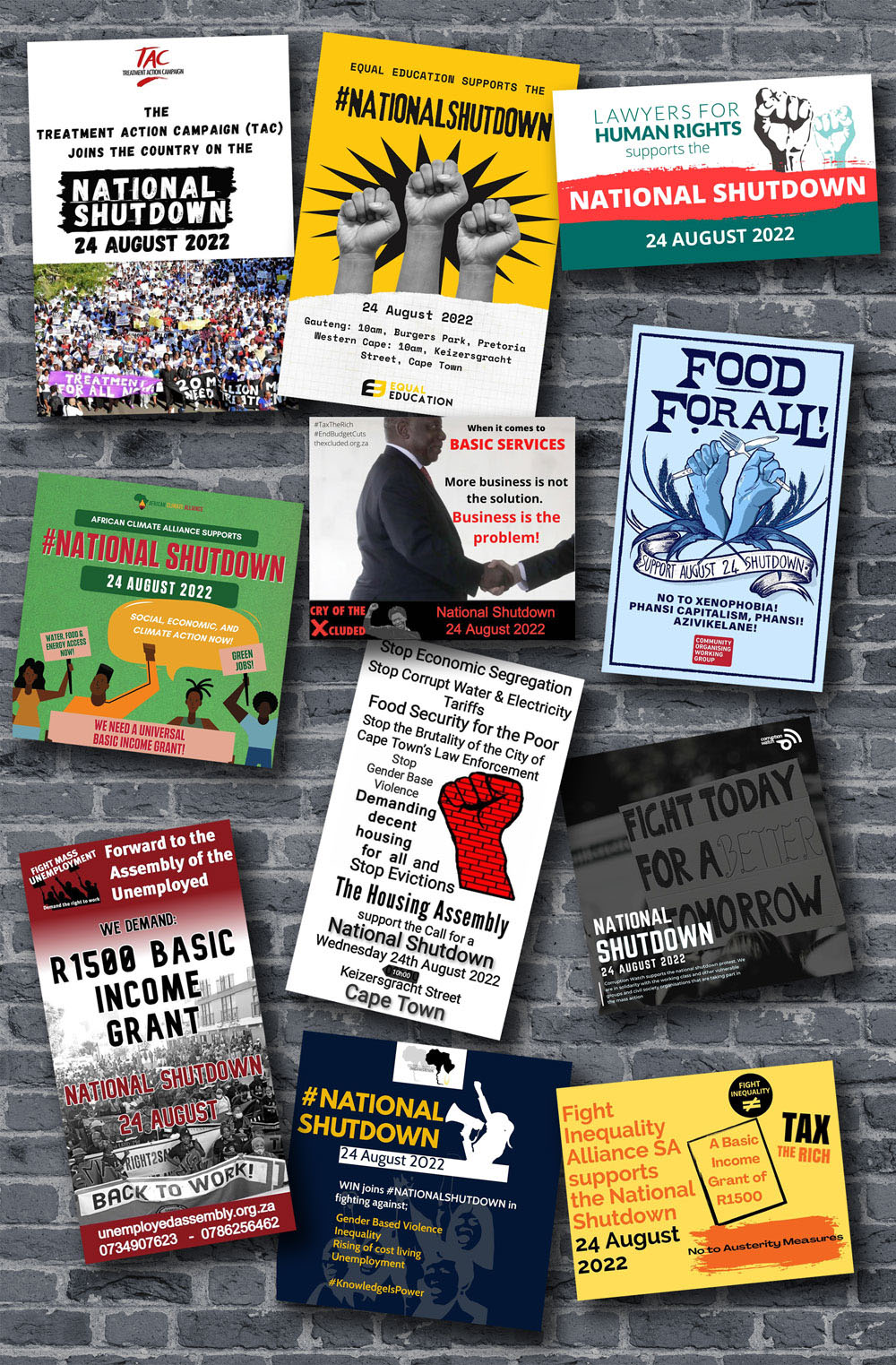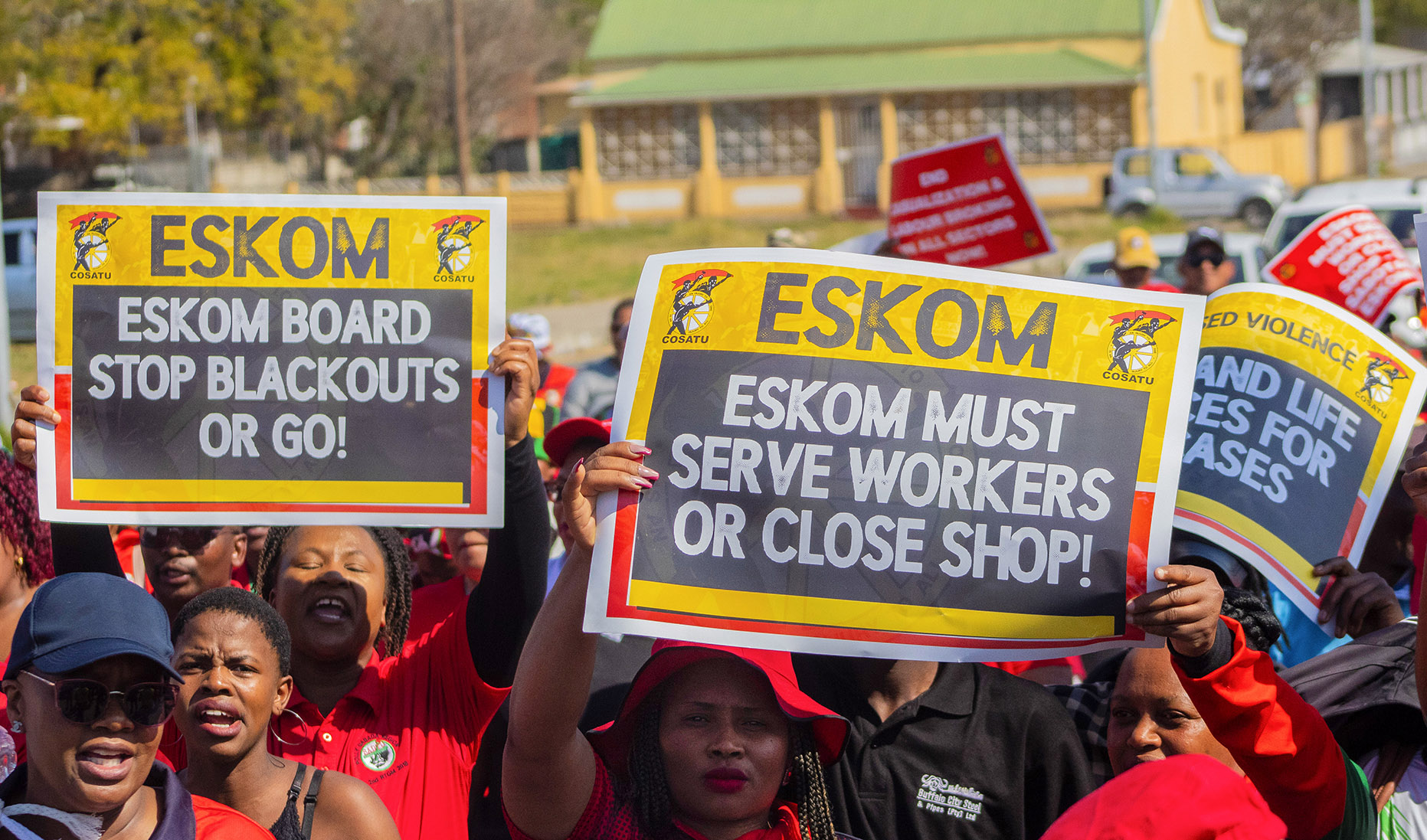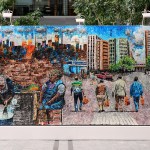WEDNESDAY NATIONAL SHUTDOWN ANALYSIS
Civil society shows its support for trade unions’ cost of living protests

Activists say their support for the shutdown is understandable as many of the demands being put forward by the unions relate to fundamental human rights in the Constitution’s Bill of Rights.
Wednesday’s protests organised by South Africa’s two largest trade union federations, Saftu and Cosatu, have elicited strong support from several civil society organisations. Their marching together points to a possible realignment of civil society increasingly allied with a reinvigorated and more independent labour movement.
Among those that came out in support were organisations that have been at the forefront of struggles for fundamental rights, including the Treatment Action Campaign (TAC), Equal Education, Lawyers for Human Rights, SECTION27, the Centre for Applied Legal Studies (Cals), Corruption Watch, the Socio-Economic Rights Institute, Abahlali baseMjondolo, the Institute for Economic Justice, the Kopanang Africa Against Xenophobia campaign and the #PaytheGrants campaign.

(Graphic: Rudi Louw)
The marches were also supported by a large number of community-level organisations that are working on issues such as food security, access to housing, violence against women and community development.
Activists say their support for the shutdown is understandable as many of the demands being put forward by the unions relate to fundamental human rights in the Constitution’s Bill of Rights, including healthcare services, sufficient food, basic education, and safety — all of which are being undermined by the government’s continued austerity policies.
Organisations contacted by Maverick Citizen had this to say:
The Defend Our Democracy Campaign:
“The Defend Our Democracy Campaign received an invite by Cosatu to attend the national shutdown march to the Union Buildings in Pretoria. However, prior to the event, we had no engagements with them on it. The campaign secretariat encouraged its staff members to attend the march. The campaign shares Cosatu, Saftu and other organisers’ concerns about the worsening political and socioeconomic crisis in the country, and how it worsens the plight of the poor and working class.”
The Rivonia Circle:
“We agree that cost of living must be highlighted as a critical issue that needs urgent attention to provide relief to millions of South Africans. Our own research shows that it is top of mind for most respondents, in particular, food and transport.
“Public protest is critical to keep the unacceptable suffering of millions of people front and centre of national attention — but it is also time for bold multi-stakeholder and political action. The opportunity to work is central to the reduction of poverty and securing the dignity of every individual. It is not possible to create sustainable work opportunities in an environment of political unaccountability, rampant corruption and poor service delivery by municipalities that are close to collapse as a result.”
Tshepo Madlingozi, the director of Cals:
“We hope this national shutdown will herald the start of a collective and genuine conversation about a new national vision and plan to build a just, humane society.
“Austerity leads to the promulgation of unconstitutional budgets. Widening inequality deepens historical injustices. The rising cost of living and associated unaffordability of food leads to hunger, stunted children, and negates the right to dignity. These are all social justice issues. Social justice is not just a matter of violations of individual rights. It’s a political economy issue; neoliberalism undercuts constitutional promises.”
Budget justice = economic justice
One of several coalitions that came out in support was the Budget Justice Coalition (BJC), made up of 22 prominent activist organisations.
The BJC described the shutdown as “an important initiative that highlights, once again, the failures of government’s economic policy in dealing with mass unemployment, deep inequalities and the crisis of hunger in the country. This socioeconomic crisis is worsened by the government’s austerity policies.”
The BJC linked the demands being made by the shutdown (read here) to proposals it made recently in a submission to the National Treasury on the 2023 Medium Term Expenditure Framework (MTEF) (accessible at BJC – FOA Submission on the 2023 MTEF).
In broad agreement with Cosatu and Saftu, the BJC argues that “the current macroeconomic policy framework is not geared towards sustainable and inclusive development”, arguing that “human rights realisation should be at the centre of the country’s macroeconomic policy framework”.
Unlawful austerity
Countering those who defend austerity as being forced upon South Africa by the current economic climate and South Africa’s rising debt-to-GDP ratio, the BJC says: “South African fiscal policy must ensure that debt management does not come at the cost of regression in the fulfilment of socioeconomic rights, the undermining of state ability, and further deterioration of public infrastructure.”
This is a position supported by leading legal academics including former judge Dennis Davis, Professor Sandy Liebenberg and advocate Thuli Madonsela from Stellenbosch University.
‘Transformative politics’ needed in SA’s fiscal arena to address drastic inequality
The BJC claims that, contrary to Treasury protestations, there is in fact fiscal space to expand social and economic support by “capitalising on the commodities boom and tax overrun”.
For example, they say that in April, preliminary results for 2021/22 showed that tax collection was R16.7-billion above the Treasury’s estimate and that “commentators have estimated the collections to be between R50-billion and R100-billion higher than Treasury’s forecast for 2021/22”.
Cosatu and Saftu have both condemned the rising inequality in South Africa. Here too, the BJC points out, the government has policy options: “Just by taxing high-income earners at the same effective tax rate (with respect to their ‘living standards’) that they were taxed in 2000 could raise between R145-R160-billion more in revenue each year.”
However, civil society says that the “range of financing options” it has presented is being ignored by the government, citing:
- Research by the Southern Centre for Inequality Studies at Wits University that a wealth tax on the wealthiest 1% of the population could raise R143-billion;
- Research by the Institute for Economic Justice that a VAT of 25% on luxury goods would raise an average of R9-billion annually; and
- A possible reduction in wasteful and irregular expenditure of up to 30% of the R166-billion reported by the Auditor-General in 2021, an amount that “could easily finance a UBIG [universal basic income grant] at the Food Poverty Line sufficient to mitigate against increased hunger and the cost-of-living crisis”.
New alliance?
It has been a long time since the unions and civil society worked together.
In the 1980s it was the alliance between Cosatu and the UDF that made apartheid South Africa ungovernable. In the early 2000s, Cosatu’s support was vital to helping the TAC break Thabo Mbeki’s Aids denialism. Although in 2017 some unions threw their weight behind Save South Africa’s demonstrations against Jacob Zuma and State Capture, while the trade unions were divided and caught up in factional politics, this relationship weakened considerably.

Workers carrying placards as they march from Qonce to the Eastern Cape Premier’s Office in Bhisho on 24 August 2022. ( Photo: Hoseya Jubase)
Now, optimism about the sea change was felt at the demonstrations which, although small, were positive and dynamic.
In the words of Dominic Brown, the director of the Alternative Information Development Centre in Cape Town it was “encouraging to see the spirit of unity and commitment to taking forward struggles. This is an important platform to build on if we are to win a UBIG, an end to austerity, and taxes on the rich etc… phambili!”
The government and business will no doubt argue that the relatively low numbers participating in Wednesday’s demonstrations and stayaway show a lack of support for the strike.
However, the extent of the active support and sympathy in civil society is indicative of the fact that the ANC and the government are increasingly diverging from their core constituency. Continuing to ignore this makes President Cyril Ramaphosa’s talk of a social compact, just talk and paper.
It points to the fact that, at the very least, institutions like Nedlac should be fixed and made genuinely representative of SA’s civil society and labour movement so that there can be a forum for meaningful and robust negotiations on policy options to ameliorate South Africa’s rapidly worsening economic and social crisis. DM/MC




















Comments - Please login in order to comment.